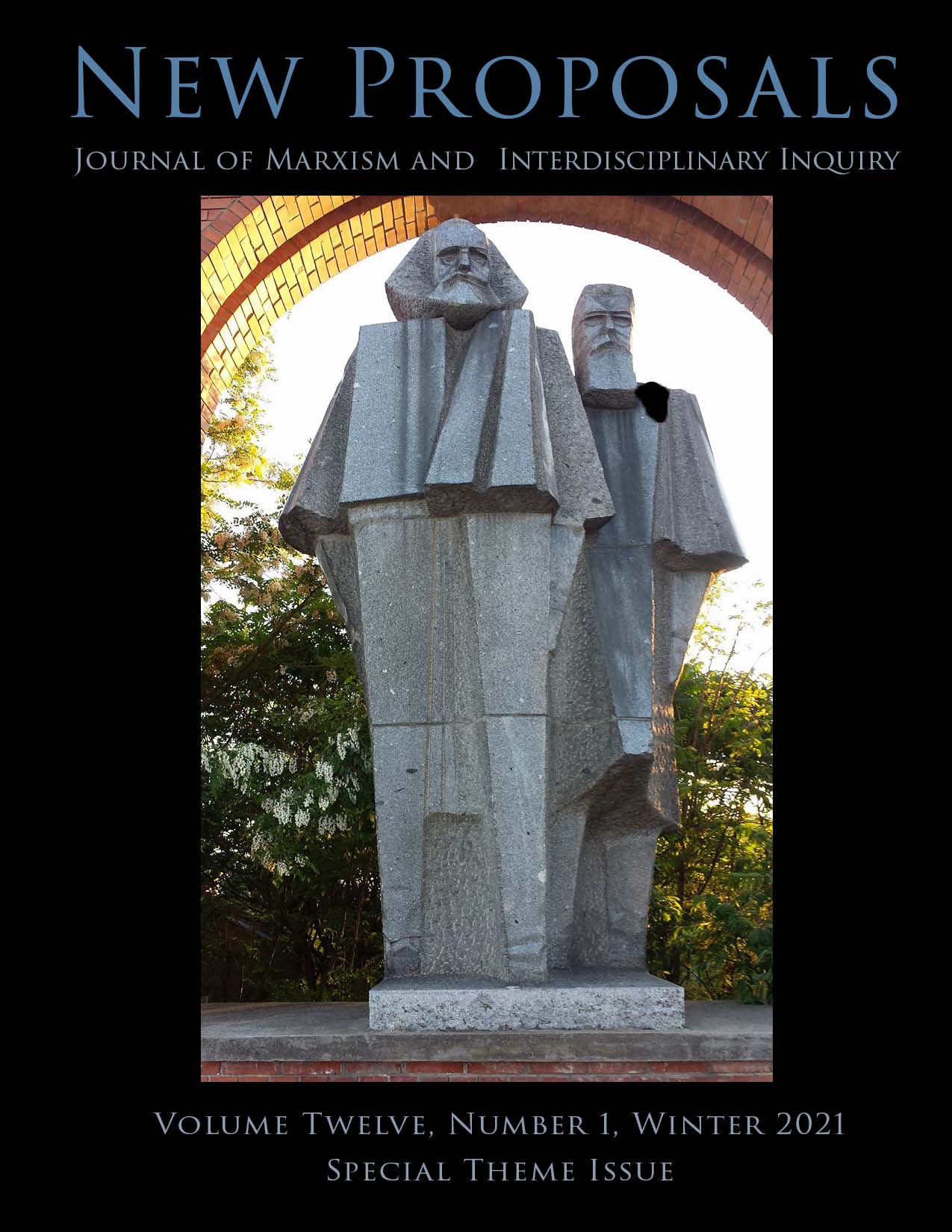Left Accelerationism, Transhumanism and the Dialectic: Three Manifestos
Abstract
Left accelerationism and the transhuman subject who embodies this movement’s political potential have multivalent relations to Marxism. Whilst recent interventions such as Srnicek and Williams’ #Accelerate: Manifesto for an Accelerationist Politics and Bastani’s Fully Automated Luxury Communism (FALC) situate themselves within the Marxist tradition (typically relying heavily on the “fragment on machines” section of the Grundrisse), immediately apparent is a problem of both politics and epistemology. In positing a transhuman subject that resolves ontologically the antagonism between labour and capital, left accelerationism flattens and dehistoricizes the specific and contingent historical and material conditions that make possible the thinking of this subject at all, and lapses from a properly dialectical mode of thought in its breathless rush to adumbrate the “inevitable” conditions for this subject’s emergence. Here, we are close to Althusser’s notion of history as a “process without a subject” (Althusser 1969), and a similar lack of dialectical rigour can be discerned. E.P Thompson’s polemic against Althusser reminds us of what is at stake in a Marxism that is fundamentally antagonistic to a thorough engagement with – and immersion in – history, specifically history as lived and made by real human subjects, and we can likewise trace in left accelerationism’s idealised transhuman a subject for whom history offers no socially embedded place, only an abstract theoretical subject-position. In short, despite the inventiveness and optimistic constructivism evident in Bastani and Srnicek and Williams’ manifestos, these very qualities speak to the lack of a properly and consistently dialectical epistemic framework: they thus implicitly reject what Jameson describes as “the austere dialectical imperative” necessary to think capitalism as “progress and catastrophe all together” (Jameson 2000, 226). Drawing on Noys, Brassier, Wood, Thompson and Jameson, this paper will critique left accelerationism’s consistent divergence from a materialist dialectic, and show how these lapses elide the contingent and always in-process nature of the political struggles that determine who the subject/s of any future historical period will be or can be. Left accelerationism contains seeds of radical political potential, however the lapses into idealism and techno-utopianism to which it is so prone result precisely from an abandonment of dialectical materialism in the very instances where a generic transhuman subject is articulated: in conceiving class relations thus, an inattention to “the hard lesson of some more genuinely dialectical way to think historical development and change” (Jameson 2000, 225) is revealed. The paper will contrast Srnicek and Williams and Bastani’s manifestos with the Xenofeminist Manifesto, arguing that this latter offers a more promising basis for an emancipatory class politics precisely because it demands serious and sustained engagement with the forces and relations of production at the level of their bounded and contingent historical specificity. It is only by resisting the abandonment of the dialectic in order to imagine the future that we might seriously arrive at a useful picture of our destination.Downloads
Published
2022-01-06
Issue
Section
Marxism + Transhumanism = Xenofeminism?
License
Copyright (c) 2021 Paddy Gordon

This work is licensed under a Creative Commons Attribution-NonCommercial 4.0 International License.
Copyright for articles published in this journal is retained by the authors, with first publication rights granted to the journal. By virtue of their appearance in this open access journal, articles are free to use, with proper attribution, in educational and other non-commercial settings.
